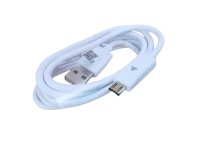≡

NB-IoT-DevKit

NB-IoT development board with BC660K-GL module and programmer
NB-IoT-DevKit is OSHW certified Open Source Hardware with UID BG000058
Select Product Variant
- NB-IoT-DevKit
- NB-IoT-DevKit-ANT
| Price | 19.95 EUR |
|---|
NB-IoT (Narrowband Internet of Things) technology is a direct competitor to LoRaWAN and SigFox and has a few advantages:
- higher speed 25.5 kbps up and down link
- single GSM cell can connect to up to 100 000 NB-IoT nodes
- single GSM cell can cover up to 10-100km rural and 1-10km urban distance
- can work up to 10 years on Lithium 3V battery if less than 200 bytes are sent per day
Note: All GSM cells which work with LTE can also support NB-IoT, but this requires new protocol installation and licensee fee, so not all operators provide it by default. You have to check with your local GSM operator if he offers NB-IoT. Also SIM card must have this protocol enabled. SIM with LTE may or may not work with NB-IoT, this depends on your operator.
NB-IoT-DevKit is IoT board with BC660K-GL LTE GSM module which covers all world wide GSM bands.
NB-IoT-DevKit-ANT has GSM antenna included
FEATURES
- BC660K-GL all world wide GSM bands coverage
- NB-IoT 25.5 kbps up and down link
- Ultra low power design: only 126 uA consumption in PSM mode
- Built-in Li-Po battery charger
- Nano SIM
- Level shifters for 5 x GPIOs, I2C, SPI, UART
- Micro UEXT connector
- U.FL antenna connector (-ANT option)
- Status LEDs
- Dimensions: 40 x 25mm
DOCUMENTS
SOFTWARE
Obsolete demos and firmware:
- (Abandonware, no longer supported) Repository with Arduino and PlatformIO examples for BC-66 and NB-IoT-DevKit
- Firmware flasher and latest firmware
USB drivers:
FAQ
- The module stops after some time. Can't access it anymore. What is the problem?
- By default the module might be set to power saving and might enter sleep. Make sure to disable sleep modes (AT+CPSMS=0 to disable power saving mode setting).
- I toggle GPIO1 and my multimeter measures only 1.5V for high-position. What is wrong?
- The multimeters have higher capacitance and disturb the TXB0108PWR translator. According to its datasheet, it can drive capacitive loads of up to 70 pF. The workaround is to also connect resistor in series between the measuring tool and the board, 200kOhm should be suitable in most cases.
- I know that board has built-in CH340 USB-serial adapter but can I connect external USB-serial adapter? How?
- Sure. Use the RxD and TxD pins from EXT4, you also need a GND pin. Notice that you need to connect RX of your cable to board's RxD pin and TX of your cable to board's TxD. Refer to the schematic for more details. Since CH340T is connected to the same UART make sure you are not using the UART made by the CH340T (e.g. don't have terminal open at the same time on the USB).





